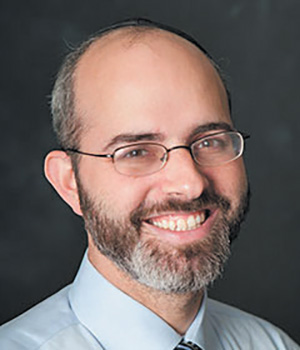
May these words of Torah serve as a merit le’iluy nishmat Menachem Mendel ben Harav Yoel David Balk, a”h.
This week we learned Bava Batra 122. These are some highlights.
Bava Batra 122: Who owns the new mizrach seats in the shul?
In many synagogues there are seats of honor near the holy ark. The holy ark is situated in the east, facing Jerusalem. The seats near it are sold to the wealthy and prominent members of the community—they are referred to as the mizrach seats. There was a shul that thankfully needed to expand. They broke the walls and built out. Instead of six seats on each side of the ark, they now had nine seats on each side of the ark. A dispute broke out. Those who had added to the shul wanted to sell the newly available mizrach seats. Older members of the congregation protested. “We used to sit in those spots. When we sat there, the seats were called corner seats. We purchased them. You have now expanded the shul. What was once the corner is now a mizrach seat. We still own those seats. We get to sit there. If you want to bring new prominent members to the eastern wall, they can sit on our sides, in the new corners.” The shul leadership rejected this claim. They argued that the old-timers had corner seats. They were entitled to the new corner seats. The new mizrach seats should be sold to a fresh group of prominent individuals. The question was sent to the Chatam Sofer (Shu”t Chatam Sofer, OC Chelek Alef Siman 29).
Chatam Sofer ruled that the old-timers were right. However, based on our Gemara he ruled that they had to pay money.
Chatam Sofer taught that when a person purchases a seat in the shul he is buying land. It is like a real estate purchase. He owns the right to the space. He can put his things in that space. The fact that the community expanded the building did not give them a right to take away his space. His space was still his. In the past that spot was a corner seat. Now it is a mizrach seat. He still owns it, and is the one who is to sit there. However, the community has made his seat more valuable. Once the community makes the location more valuable, the beneficiary needs to pay. The source for this is our Gemara.
Our Gemara teaches that the Land of Israel was divided into 12 states and apportioned to the 12 tribes in Israel. Within each territory, the land was divided up to each family. It also taught that those who had more-valuable lands compensated those who had less-valuable locations. The Gemara asked, “Who was such a fool to accept a less-valuable land and some cash as compensation?” The Gemara answered that the lands were equal in their fertility and ability to produce income. However, a piece of land closer to Jerusalem is more valuable and important than land far from the holy city. Those lucky Jews who got plots near Jerusalem paid money to those who received land far from Jerusalem. Chatam Sofer made a powerful historical observation. When the Jews entered Israel and got land from Joshua, they did not know where Jerusalem was to be located. Jerusalem initially was occupied by the Jebusites. Hundreds of years after the allocation and division of the land, Jerusalem was discovered by King David and brought under Jewish control. Yet our Gemara, according to Rashbam, teaches that those who were closer to Jerusalem had more prominent and valuable land and they paid money to those who had farther and therefore less-valuable spots. If when Joshua gave out the land the Jerusalemites paid money, then we did know of Jerusalem’s location and importance right away! What did King David later discover? From these questions a new understanding emerges. When the Jews first entered the holy land they did not know of Jerusalem. Hundreds of years later David discovered it and purchased the Temple Mount. Then the lands near there became valuable. Then, once the lands became valuable, the residents compensated their brethren. Even if land is made more valuable later, at that later time compensation should be paid. So too in our case. The community had made the spots of the old-timers more valuable by expanding the shul and turning them into mizrach seats. The old-timers were entitled to stay there but they had to add to the communal coffers. They had to pay the community compensation for precious seats, for now their seats were more prominent and valuable (Me’orot Daf Hayomi).
By Rabbi Zev Reichman
Rabbi Zev Reichman teaches Daf Yomi in his shul, East Hill Synagogue.










